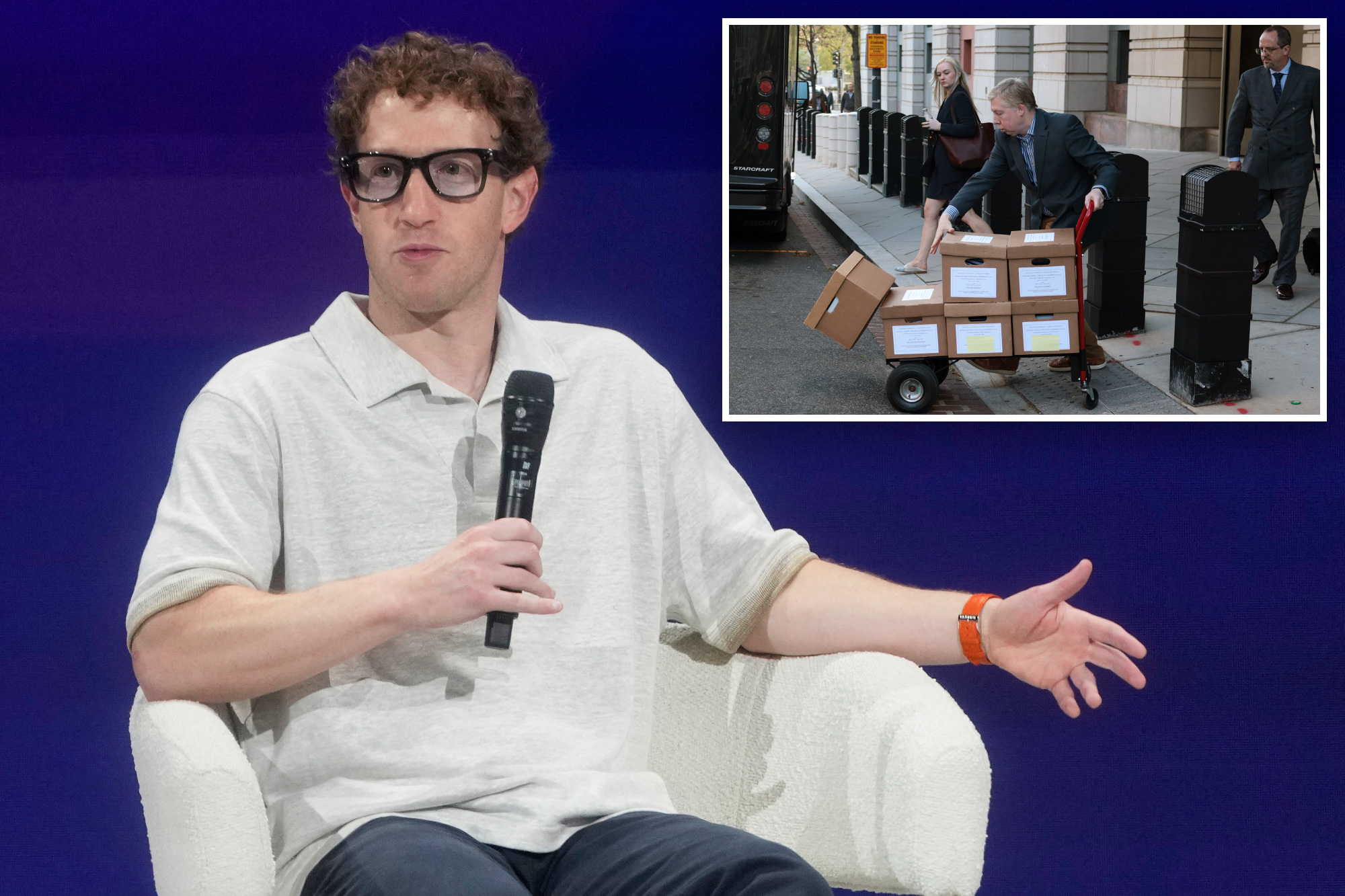Meta fate is in the air after Mark Zuckerberg’s laundry dirt was published in a milestone antimonopoly trial presented by the Federal Commerce Commission, although some experts warn that the social media giant could come out of the rupture sought by regulators.
The seven -week trial concluded on Tuesday after several bombs on the inner operation of the finish line, including an email from 2012 in which Zuckerberg admitted that the purchase of Instagram would “neutralize a competitor” and internal reports show the executives that they climb that Instagram directed minors to adult sex creation called “ groomers ”.
Despite the shameful evidence, the case is expected to be based on the way the Judge in the North -American District James Boasberg defines the market on which Meta operates.
The FTC argued that Meta has an illegal monopoly on a closely defined market for social media companies built on friends and family connections, with Snapchat as the only real competitor.
Meta was promoted again, arguing that its applications are facing a hard competition from rivals like Tiktok and YouTube owned by Google for user care.
Meta has called the case of the FTC “weak” and, in a trusted show, finished its defense before the schedule of last week after calling a few witnesses.
This is a signal that his lawyers see the question of the definition of the market as a strong argument against a rupture, according to Christine Bartolomé, an antimonopoli expert and a professor at the University of the Buffalo School of Law.
“In a case of monopoly, the winner of the dispute on how to define the market is often the global winner,” Bartholomew said. “Like most accused of this type of case, Meta argues that the market is wider. The larger the relevant market, the less the potential anticompetory impact of the presumed goal behavior.”
The FTC has accused a goal of using a “purchase or burial” strategy to support applications of social media such as Instagram and WhatsApp before they could threaten their social media empire.
The Agency wants a forced Instagram sale, purchased by $ 1 billion in 2012, and WhatsApp acquired by $ 18 billion in 2014.
The smoking gun emails are the strongest part of the FTC case, according to Bartholomew. In a 2018 message, Zuckerberg thought whether Meta should “consider the extreme step of turning Instagram” to advance the regulators.
“They confirm the narration of the FTC that goal acquisitions aimed to minimize competition,” said Bartholomew. “It was not the offers aimed at improving a product or improving consumers’ benefit. Rather, they were acquisitions aimed at protecting a goal from perceived competitive threats.”
FTC denied comments.
“After six weeks trying to get rid of the acquisitions made more than a decade ago and show that no agreement is really final, the only one that showed the FTC was the dynamic, hyper -compulsory nature of the past, the present and the future of the technology industry,” said a goal spokesman in a statement.
During the test, Instagram co -founder Kevin Systrom testified that Zuckerberg had dealt with his application as a “threat” for the company’s main business business.
Systrom said that he considered Zuckerberg to have famed Instagram of the necessary resources, including the approval of accounts needed to improve the security standards in the application in the wake of the privacy scandal of the Cambridge Analytica data.
In the meantime, Zuckerberg and Meta argued that Instagram’s rise to the prominence was not a safe thing, and that the company helped instead of impairing its growth.
The company’s lawyers also asked the judge to launch the case in the middle of trial, arguing that the FTC had not fulfilled its testing.
Boasberg rejected the request.
Although the end result is difficult to predict, cases focused on potential violations of Section 2 of Sherman’s Law, where responsibility is based on whether a monopoly exists on a specific market, they face a high bar to prove and is notoriously difficult to win.
“There are many ways to lose a plaintiff,” said Bartolomé.
With face -to -face arguments, FTC lawyers and Meta will then send written writings that explain their arguments in favor and against a rupture for the judge’s review.
Boasberg said he will move “quickly” to dictate a sentence in the case.
If the judge governs in favor of a goal, the FTC is expected to appeal.
If the judge meets the FTC and determines that Meta has breached the law, a second trial would be made to decide the appropriate remedies. Meta would safely appeal.
#goal #goal #antimonopoly #judgment #FTC #limb #judge #weighs #rupture
Image Source : nypost.com
